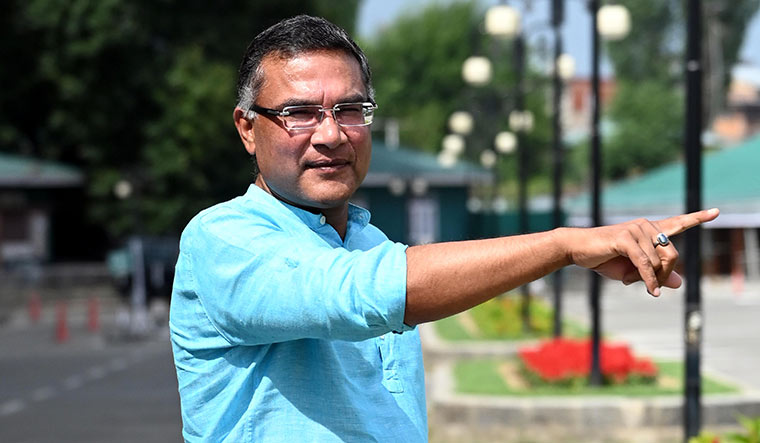THE CHANGEMAKERS
Shailendra Kumar, Principal secretary, public works department
SHAILENDRA KUMAR’S ancestral village Aer in Bihar's Bhojpur district was eight kilometres from the nearest pucca road when he was growing up. Travel was often on foot or on bullock carts and the real challenge came when a river had to be crossed. Shailendra still remembers how worried his mother used to be while taking him to school.
“Roads are like places, pictures and memories, reminding you of the journey of your own life,” says Shailendra. The desire to build roads to connect villages to towns and towns to cities drove him to write the civil services examination. Today, sitting in his office in the state secretariat in Srinagar, the road networks of J&K and its missing links are Shailendra's primary concerns.
Also read
- How Kashmiris are slowly opening their hearts and minds to new thoughts
- CID DG R.R. Swain: Valley’s own commando
- Athar Aamir Khan, commissioner, Srinagar Municipal Corporation: Keeping Kashmir smart
- J&K Sports Council secretary Nuzhat Gull: The people's champion
- IT secretary Prerna Puri: Transforming with technology
- ADGP Vijay Kumar: Catching merchants of death
“Whether it is Bihar or J&K, the problems are the same―reaching hospitals on time, walking long distances to schools or to work and the plight of women and farmers. No development can take place if there are no roads,” says Shailendra. It has been a herculean task involving proper planning, creating good teams and rigorously monitoring work under the Pradhan Mantri Gram Sadak Yojna where the annual achievement jumped from the completion of 1,500km to 3,200km, he says. The building of tunnels in J&K is already the talk of the town with the Zoji-la, Z-Morh and the Khuni Nallah tunnels nearing completion. In Srinagar, almost 60 roads totalling 226km were repaired at a cost of Rs71.32 crore to facilitate the G20 tourism meet.
But it has not always been smooth sailing for Shailendra. He continue to face bottlenecks regarding land and forest acquisition, utility shifting and mining material. “But we are overcoming all hurdles because this will have a direct impact on the lives of the rural people, the availability of paramedics and teachers and enrolment of girls in higher secondary schools,” he says. “Even marriages take place on the basis of whether the roads reach up to the house of the bride because the city groom wants to come in a car.’’


